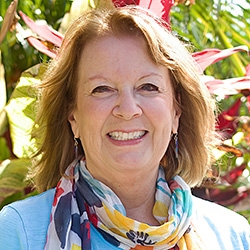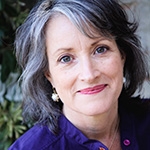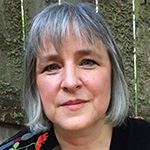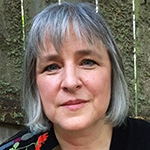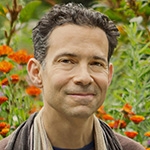

Search Results: love
-
September says CHANGE to me and I love it! It’s a time to move away from summer and welcome in the fall – its changing colors, the changing light as the days become shorter. In this beautiful time of year, I start to notice an inner call for greater focus on the state of my life and work. Did you know that change has its own stages?
-
Dear friends,
Every so often, gratitude rolls over and through me like a tidal wave, leaving me with awe in its wake. I think of my grandson, River. I think of my wife, Kim. I think of how blessed we are to have the family, friends, and community we have. The other person I’m feeling immense gratitude for today is Marshall Rosenberg. It was his birthday last month, and each year, I get re-immersed in this heartwarming, almost overwhelming, sense of gratitude for this incredible person who changed my life with his vision, heart, and clarity. Let me tell you how Marshall changed my life.
-
Learn quick self-empathy techniques to notice your sensations, feelings, and needs.
-
Developing interpersonal relationship skills in congregations is integral to working with the conflicts that arise. These skills can be applied to any spiritual community.
-
Discover seven key conversations that help intimate relationships thrive.
-
When faced with someone’s grief for the world, how do you engage with them in a way that is informed? In this session, Kristin suggests exploring what they might be grieving… what they’re afraid of losing… and what it is that they love.
-
This resource is free for all to enjoy during May. Sarah Peyton explains how your brain's left hemisphere excels at pattern making. NVC can help integrate both hemispheres, enabling you to use the left side's love of patterns for abstract thinking.
-
There's reactive anger - the sudden outbursts of words, temper or action that create a nervous system response in another. And then there's the anger that's a reaction to someone's anger -- a nervous system startle-response. Instead of either of these, we can learn to heal with empathy, look for unequal power dynamics, take responsibility to make repairs, and shift into the clean, life-serving, fully expressed anger and love.
-
What have you lost this year during this COVID-19 pandemic? Are you grieving too? Recognition of loss can helped contextualize our emotions. When we can meet grief with understanding, patience and tenderness, when we create space to mourn our losses -- and to begin to process, heal and metabolize loss. This can help us make sense of change and orient to a new reality. Grief is a longing for what we love.
-
With a world in crisis, steeped in incomprehensible violence, how do we then live? What, if anything, could turn this around? If we're all dying, let us die loving everyone, including ourselves and our former enemies. Let us come together behind wanting everyone to be free. Let us align means with ends as we envision a world that, against all odds, moves towards working for all of life. Let us dedicate our lives to service, to courage, to speaking truth, and to love.
-
With worthlessness comes the idea of not belonging or not being worthy of belonging. In this context, belonging is more than an identity with a particular group. It is the sort of belonging that enables you to get other fundamental needs met, including safety, support, nourishment, and love. Unconscious attempts win worthiness and belonging often effectively blocks the very thing its pursuing. Read on for more.
-
Marriage can be seen as a limit on freedom. Ideas of compromise collude with this view. Instead, notice when your "yes" to your partner is laden with obligation, duty, guilt, fear, or an attempt to win love or approval, and how it's not a truly free "yes". True freedom is different from compulsion, and doesn't conflict with other needs. When have you experienced true freedom? What conditions support your access to freedom?
-
When outraged or resigned over polarized issues, pause to ask yourself who may be benefiting from this conflict? What are we not paying attention to that’s even more important? What matters most? Am I being distracted away from something more important? What do I really want? Where can I choose to focus attention and action for the wellbeing of all life on the planet (which is also my wellbeing and the well being of those I love)?
-
In this moving reflection, Rachelle Lamb honors Marshall Rosenberg’s true vision for Nonviolent Communication—not just as a tool for personal transformation, but as a catalyst for deep social change. She reminds us that inner work alone is not enough in a world facing ecological collapse, rising suicide rates, and widespread displacement.

Quick Links
Subscription Preferences
Stay In Touch!
Looking for ways to keep up with NVC Academy news, get special offers, free resources, or words of inspiration? Here are five ways to stay engaged:


